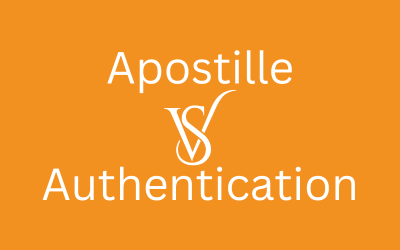The idea of a Certificate of Authority can be confusing, as the term has several different applications. The most common type of Certificate of Authority is a document that authorizes you to legally conduct business in a state other than where your company is based. Other types of Certificates of Authority are industry related and required for a specific purpose or to conduct business within a particular industry.
In addition, I should note that while Certificate of Authority is a common name for this document, it varies from state to state. In California, for instance, the document is known as a Statement and Designation by Foreign Corporation. New York calls the document an Application for Authority, while in Florida it is an Application for Authorization to Conduct Business in Florida. It may also be referred to as an Application for Registration, Qualification Certificate, or another name. For our purposes, I’ll refer to the document as Certificate of Authority.
In this article, we’ll explore those variations of Certificates of Authority and I’ll explain when you would need one and how to obtain it. Because requirements regarding Certificates of Authority vary so much from state to state, however, I encourage you to seek advice regarding them from your attorney, accountant, or tax advisor.
1. Certificate of Authority to Conduct Business in Another State
If you’re a Limited Liability Company (LLC) or Corporation and planning to conduct business in a state other than the one in which your company was formed, you’ll need to register the company in the state or states you’re expanding into. This process is known as “foreign qualification.” To foreign qualify in other states, you’ll need a Certificate of Authority to prove you’re authorized to do business there.
While we normally think of “foreign” as referring to a different country, in this case, it refers to a different state. If you expand your North Carolina-based LLC into Virginia and Tennessee, for instance, you’re considered a domestic LLC in North Carolina and a foreign LLC in Virginia and Tennessee. It is your responsibility to adhere to all the particular rules, regulations, tax laws, and compliance requirements of each state.
What it Means to “Conduct Business” in Another State
An LLC or Corporation that conducts business outside of the state where it initially filed its articles of organization or articles of incorporation must register as a foreign LLC. But what does it mean, exactly, to “conduct business?”
Different states have different rules about what it means to conduct business, so it’s essential to research the laws of the state or states you’re expanding into.
Typically, a state will consider a company to be conducting business if it meets one or more of the following criteria:
- The company has a physical location in the state, such as office space, a store, or a warehouse.
- The company has employees living or working in the state.
- The company is liable for paying sales tax on the goods and services it sells in the state.
- The company holds in-person meetings with clients in the state.
- The company has a significant revenue stream from activities in the state.
How to Apply to Do Business in Other States
If you’ve determined that you need to foreign qualify in another state, you’ll need to submit an application for Certificate of Authority to the state’s Office of the Secretary of State or comparable agency. While the process is similar in most states, requirements vary, so be sure you understand the rules of each state.
Generally, you’ll need to provide information about your company, such as its name, when and where it was incorporated, the name and address of your registered agent, names and address of corporate officers, and the amount of stock that’s been issued.
The application fee you’ll need to pay varies from state to state, ranging anywhere from 25 to several hundred dollars. Some states require proof that your company is in legal compliance in its home state by having you submit a Certificate of Good Standing issued by the Office of the Secretary of State. You also may have to provide a signature from your registered agent, certified copies of filed articles, amendments, and other filing, and other documents.
Some states require that you check to make sure the name of your business is available in the state where you’re seeking foreign qualification. If the name is already taken, you may have to file a DBA (doing business as).
Once the foreign qualification process is complete and the state has granted approval for the business to operate there, the Office of the Secretary of State will issue a Certificate of Authority. The document should be stored with other important registration and compliance records.
Benefits of Obtaining Foreign Qualification
There are some significant benefits in obtaining a Certificate of Authority, one of which is it enables your company to expand into other states without going through the larger process of forming an LLC or corporation in those jurisdictions. Foreign qualification requires less paperwork and costs less than registering as a new company in a state. Also, the document means the business can apply for the necessary licenses and permits and collect, report, and remit taxes in the jurisdiction.
The most significant benefit of a Certificate of Authority, however, is that it proves your company is in compliance with state laws. Unlawfully conducting business within a state can lead to damaging consequences including fines, penalties, legal action, and even suspension of the entity.
2. Industry-Related Certificates of Authority
Some states require a Certificate of Authority for a specific purpose or to conduct business within a specific industry.
Tax Certificate of Authority
Some states, such as New York, require business entities to have a Tax Certificate of Authority if they sell goods or services subject to sales tax. Having this type of business license gives the company the right to collect tax on sales, and issue and accept sales tax exemption certificates.
Entities that operate a business in more than one location in the state must have a Tax Certificate of Authority for each site and display it prominently.
Business owners must complete an application and pay a fee to the state tax agency to obtain the certificate and be assigned a sales tax ID number. Tax certificates need to be renewed regularly for the company to remain compliant and authorized to collect and remit sales tax.
Insurance Certificate of Authority
A person wishing to start an insurance company must obtain special licensing to do so legally. To do that, they’ll need to complete a Uniform Certificate of Authority Application (UCAA) through the Department of Insurance in their state.
The UCAA comes in two varieties for the purposes described below:
- Primary Application – To request a Certificate of Authority to operate an insurance business in the company’s home state.
- Expansion Application – To request to expand an insurance company into a state other than the home state.
There is also a Corporate Amendments Application for existing insurers who want to make changes to their Certificates of Authority. Insurance company owners who are unsure about which type of application to file should verify their requirements with their state’s Department of Insurance.
Getting it Right
Determining whether your business needs a Certificate of Authority can be confusing, and researching the regulations of different states is time consuming. Because the consequences of conducting business in a state without having obtained a Certificate of Authority can be severe, I strongly recommend that you consult with your attorney or tax advisor to determine whether getting one is necessary, and how to obtain one if needed.
Need to Foreign Quality Your Business?
If your company is conducting business in a state other than the state of formation, you may need to file a foreign qualification. With our services, we make this process quick and easy!





